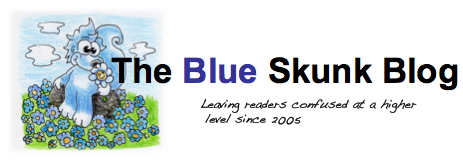The sound of history changing
 Saturday, November 19, 2011 at 06:11AM
Saturday, November 19, 2011 at 06:11AM Tom Friedman writes in his recent column The Last Person about India's own OLPC project - an effort to provide low cost computing devices and Internet connectivity to the poorest of the poor. Friedman relates this story about when a maid was told about the project:
Urmila told her it was true and that the machine was meant for people who could not afford a big computer. Added Urmila: “She asked, ‘How much will it cost?’ I said, ‘It will cost you around 1,500 rupees.’ [$30.] She said: ‘15,000 or 1,500?’ I said, ‘1,500.’ She was sure that if the government was doing something so good for the poor, it had to have a catch. ‘What can you do on it?’ she asked me. I said, ‘If your daughter goes to school, she can use it to download videos of class lessons,’ just like she had seen my son download physics lectures every week from M.I.T.’s [OpenCourseWare]. I said, ‘You have seen our son sitting at the computer listening to a teacher who is speaking. That teacher is actually in America.’ She just kept getting wider- and wider-eyed. Then she asked me will her kids be able to learn English on it. I said, ‘Yes, they will definitely be able to learn English,’ which is the passport for upward mobility here. I said, ‘It will be so cheap you will be able to buy one for your son and one for your daughter!’ ”
That conversation is the sound of history changing.
I would agree. Despite the skepticism, despite the over-hype, despite the needed leap of faith, giving students unfettered, ubiquitous access to the Internet will do more to improve education than any other reform effort. (India's own efforts in this area will be successful whereas MIT's neo-colonial efforts were a bust.)

Notice I said reform "education" rather than reform "schooling." There is a difference. This will be real learning, not the set of artificial academic hoops that currently pass for education, hoops designed as sorting tools rather than an enabling activities.
How do you as an adult learn? With a teacher? With worksheets? With tests? With a prescribed curriculum? With stated national outcomes?
Or do you learn what is of interest and importance to you? When you want to learn? With help from peers? In the ways that best suit your learning style? With self-assessment and application playing a major roles in you knowing if and when you've learned successfully?
Increasingly, schools and educators will be pushed aside by students wanting a genuine "education." And low cost netbooks, tablets and smartphones will be doing the pushing. Our dysfunctional U.S. government will do little or nothing to help provide connectivity on the scale of India's Aakash tablet project. But don't think it isn't coming anyway. Kids will figure out how to get this stuff without much help.
Prepare to greet The Diamond Age's Mouse Army very, very soon.










